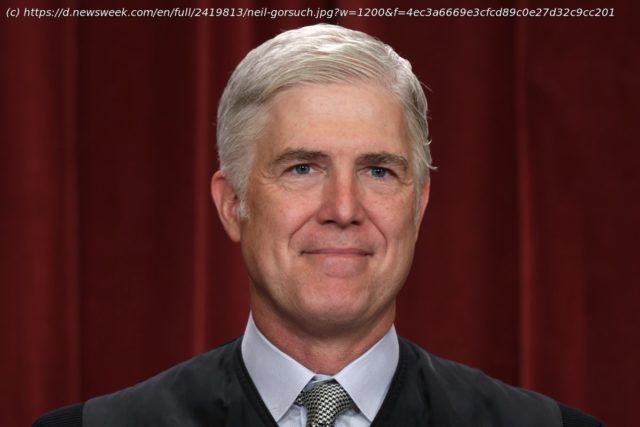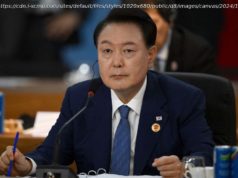Justice Gorsuch recently celebrated the Court’s ruling to end the Chevron deference, a 40-year administrative law precedent.
In Friday’s 6-3 ruling in Loper Bright Enterprises v. Raimondo, the Supreme Court overturned 40 years of administrative law precedent, a decision former federal prosecutor Shan Wu characterized on Saturday as a „revolution“, with Justice Neil Gorsuch playing a key role.
The Court’s decision dismantles the Chevron deference established in the 1984 case Chevron U.S.A. Inc. v. Natural Resources Defense Council, one of the most cited cases in American law. This doctrine had instructed courts to defer to federal agencies‘ interpretations of ambiguous statutes, acknowledging that Congress often cannot resolve every detail in legislation.
Wu, in his analysis for The Daily Beast on Saturday, points to Gorsuch’s concurrence as particularly revealing. Gorsuch writes that the story of Chevron is „[a] revolution masquerading as the status quo.“ Wu argues that this statement is a projection of the conservative justices‘ own motivations, stating, „It’s Gorsuch who is helping lead a revolution.“
Wu notes that this revolution is „hardly slowed at all by stare decisis—the jurisprudential doctrine of determining new cases based on old ones“, highlighting the significance of overturning a 40-year-old precedent.
The majority, led by Chief Justice John Roberts and joined by the Court’s other conservative justices, held that „courts may not defer to an agency interpretation of the law simply because a statute is ambiguous“, effectively overturning Chevron deference.
Start
United States
USA — Criminal Neil Gorsuch Leading 'Revolution' in Supreme Court Ruling: Ex-Prosecutor






